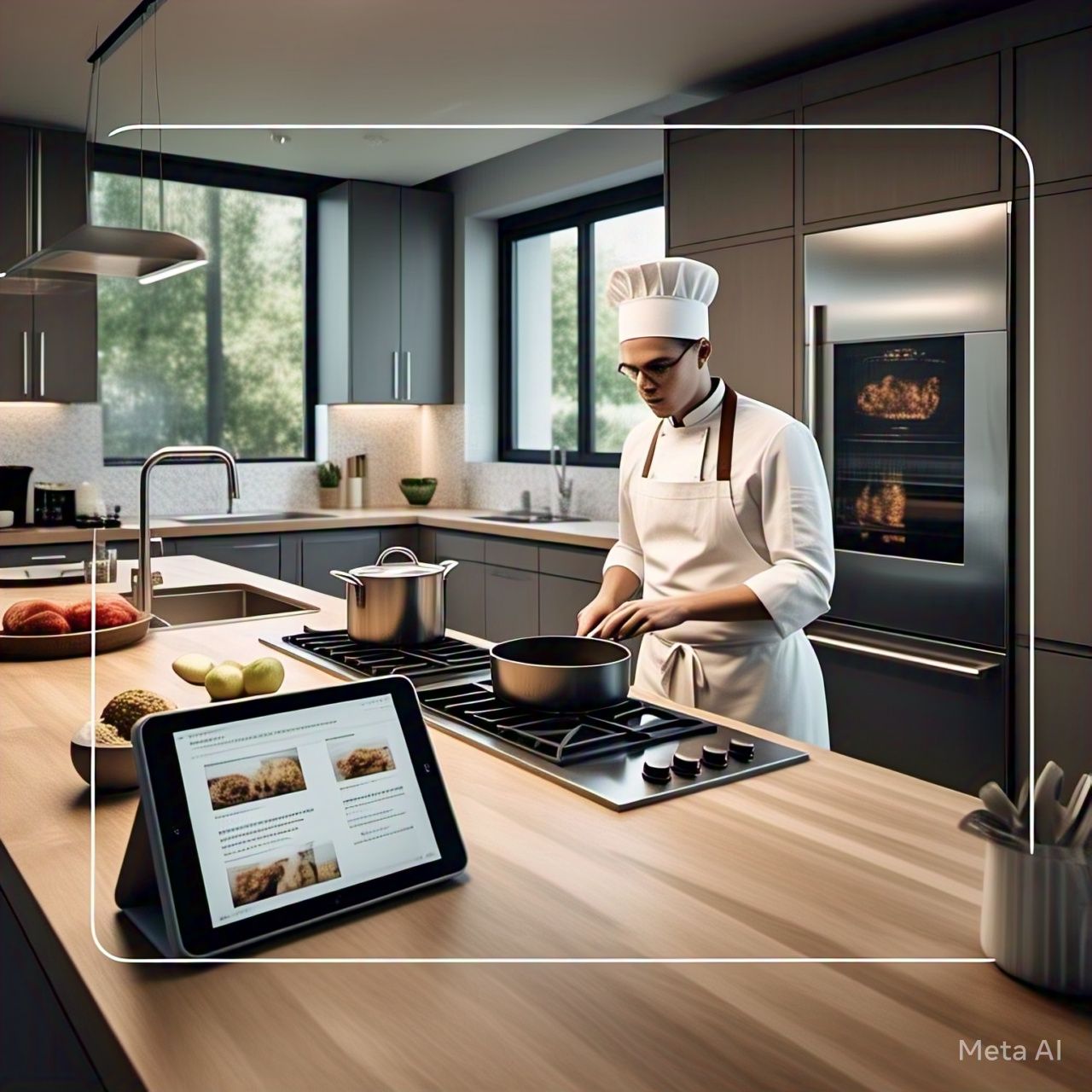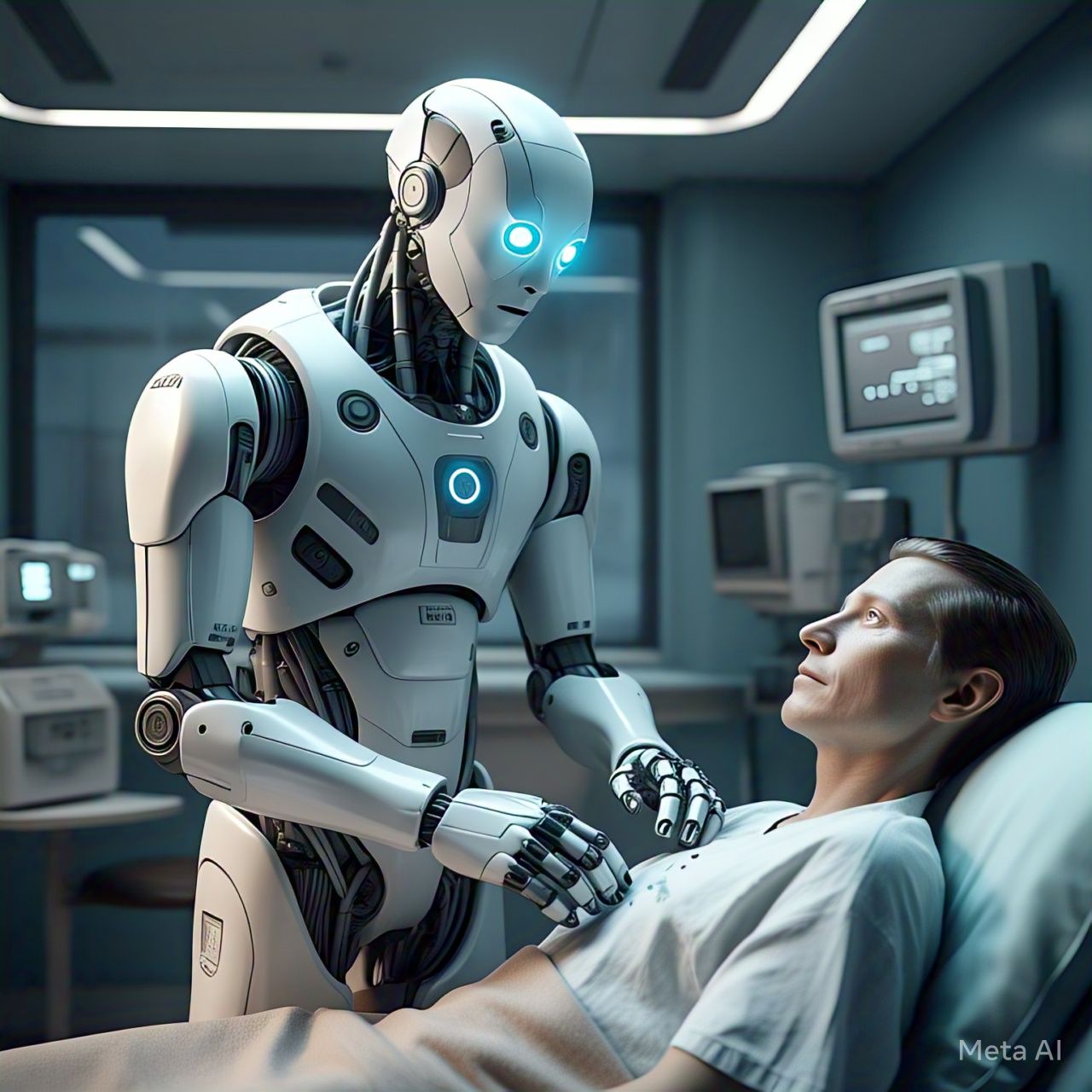Table of Contents
- Introduction
- What is a Smart Kitchen?
- How AI is Transforming Kitchens
- AI-Powered Cooking Assistants
- Smart Refrigerators
- Automated Grocery Management
- Voice-Controlled Kitchen Appliances
- AI Recipe Recommendations
- Benefits of AI in Smart Kitchens
- Popular AI-Driven Kitchen Devices
- The Future of AI in Smart Kitchens
- Challenges and Concerns
- FAQs
- Conclusion
1. Introduction
Artificial intelligence (AI) is revolutionizing every aspect of our lives, and the kitchen is no exception. Smart kitchens equipped with AI-powered appliances and assistants are making cooking more efficient, healthier, and enjoyable. From automated meal planning to voice-activated cooking commands, AI is bringing intelligence and convenience into modern households.
This article explores how AI is transforming kitchens, its benefits, and what the future holds for this exciting technology.
2. What is a Smart Kitchen?
A smart kitchen integrates AI, IoT (Internet of Things), and automation to simplify cooking and food management. It consists of smart appliances like AI-powered refrigerators, ovens, dishwashers, and cooking assistants that can be controlled via voice commands or mobile apps. These appliances learn user habits, suggest recipes, track grocery inventory, and even cook meals autonomously.
3. How AI is Transforming Kitchens
AI-Powered Cooking Assistants
AI-driven voice assistants like Amazon Alexa and Google Assistant help users cook by providing step-by-step instructions, setting timers, and offering real-time guidance based on cooking progress.
Smart Refrigerators
AI refrigerators, like the Samsung Family Hub, track food inventory, suggest recipes based on available ingredients, and even notify users when groceries are about to expire.
Automated Grocery Management
AI-enabled apps can automatically create shopping lists, order groceries online, and integrate with smart fridges to optimize food consumption, reducing waste.
Voice-Controlled Kitchen Appliances
With voice commands, users can control ovens, microwaves, coffee makers, and more. AI-integrated appliances adjust settings automatically based on the type of food being cooked.
AI Recipe Recommendations
AI-driven meal planning tools analyze users’ dietary preferences, health goals, and available ingredients to suggest personalized meal options.
4. Benefits of AI in Smart Kitchens
1. Increased Efficiency
AI speeds up cooking processes, automates routine tasks, and reduces human error.
2. Healthier Eating Habits
AI suggests recipes based on nutritional needs and monitors calorie intake.
3. Energy and Cost Savings
Smart appliances optimize power consumption, reducing electricity bills.
4. Reduced Food Waste
AI tracks food inventory and expiration dates, ensuring optimal use of ingredients.
5. Convenience
Voice-activated controls and automated cooking make meal preparation effortless.
5. Popular AI-Driven Kitchen Devices
| Device | Brand | Features |
|---|---|---|
| Smart Oven | Tovala, June Oven | Automatic cooking, app control |
| AI Fridge | Samsung Family Hub | Inventory tracking, grocery management, touchscreen display |
| Smart Coffee Maker | Smarter Coffee | Wi-Fi enabled, voice-controlled brewing |
| Smart Instant Pot | Instant Brands | Pressure cooking, slow cooking, air frying with AI-guided recipes |
| Smart Scale | Drop Scale | Measures ingredients and provides nutritional data |
6. The Future of AI in Smart Kitchens
The next generation of smart kitchens will go beyond connected appliances. Some key advancements include:
- AI-driven robotic chefs that can prepare meals autonomously.
- Smart grocery shopping features, where fridges automatically reorder food items.
- IoT-enabled kitchens that communicate with other smart home devices for a seamless experience.
- Personalized nutrition tracking to help individuals meet their dietary goals.
5. The Future of AI in Smart Kitchens
The future of smart kitchens looks promising with upcoming trends such as:
- Augmented Reality (AR) Cooking Guides: Holographic tutorials to guide users step-by-step in cooking meals.
- AI-Based Personalized Nutrition Plans: Integration of wearable health data to provide better meal recommendations.
- Smart Waste Management: AI-enabled trash cans that identify waste and suggest composting or recycling options.
- Automated Grocery Restocking: Fridges and cabinets will reorder food automatically when running low.
- Robotic Kitchen Assistants: Advanced kitchen robots will handle tasks like chopping, stirring, and even plating meals.
6. The Future of AI in Smart Kitchens
The development of AI in kitchens will continue to grow with advancements in IoT, robotics, and machine learning. Some possible future trends include:
- AI-enabled refrigerators predicting ingredient expiration and ordering replacements automatically.
- Fully automated kitchen assistants preparing meals with minimal human intervention.
- Smart waste management systems that reduce food wastage through AI-powered monitoring.
- AI-driven nutritional analysis and diet customization.
7. FAQs
1. How do AI-powered kitchens help save time?
AI automates time-consuming tasks like preheating ovens, setting cooking timers, and meal prepping, allowing for more efficient meal preparation.
2. Can AI in kitchens help me eat healthier?
Yes, AI can track your dietary habits, suggest balanced meal plans, and help you monitor your food intake for a healthier lifestyle.
3. Are smart kitchen appliances expensive?
The cost varies, but smart kitchen appliances are becoming more affordable with time. Some high-end smart ovens and fridges are still costly, but their energy-saving features can make them a worthwhile investment in the long run.
4. How do AI ovens work?
Smart ovens use AI to adjust cooking times and temperatures automatically. Some even have cameras to recognize food items and suggest optimal cooking settings.
5. Do smart kitchens save energy?
Yes, AI-enabled kitchen appliances optimize energy consumption, reducing waste and lowering utility bills by using sensors and automation.
6. Can AI-powered kitchens prevent food waste?
Yes. Smart fridges track expiration dates and suggest recipes based on the ingredients available, reducing food waste significantly.
7. Are AI kitchens safe?
Yes, most AI-powered kitchen appliances have safety features such as automatic shut-off, smoke detection, and emergency alerts to prevent accidents.
Conclusion
AI-powered smart kitchens are revolutionizing the way we cook, eat, and live. With intelligent cooking assistants, voice-controlled appliances, and personalized meal planning, AI is making daily tasks easier and more efficient. In the future, we can expect even more innovative features, such as fully automated cooking and AI-driven meal planning tailored to our health needs.
Embracing AI in our kitchens is no longer a distant dream—it’s becoming an everyday reality that enhances convenience, efficiency, and healthy living. As technology continues to evolve, smart kitchens will become more intelligent, intuitive, and indispensable in our daily lives.




